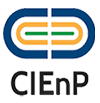Safety Services
The main objective of the preclinical safety study is to safely estimate the first-in-human dose of a drug, identify the clinical parameters in order to determine the possible potential side effects, and on some occasions, to establish a more specific toxicological approach. CIEnP offers a variety of non-clinical safety assays:
The goals of the nonclinical safety evaluation generally include a characterization of toxic effects with respect to target organs, dose dependence, relationship to exposure, and, when appropriate, potential reversibility. This information is important to estimate an initial safe starting dose and dose range for the human trials and to identify parameters for clinical monitoring for potential adverse effects.
Assays offered:
- Toxicology – Preliminary assays;
- Maximum Tolerated Dose;
- Repeated Dose Toxicology (14 days, 28 days, 90 days and others);
- Dermal toxicity
- Local tolerance
- A Dose Range-Finding Study in Pregnant Rats
Genetic toxicology studies are required for most classes of chemicals and drugs, but not for biological drugs. CIEnP conducts genetic toxicology studies in a tiered approach, starting with an Ames test and progressing to mammalian cell and in vivo assays, which are designed to assess the toxicological relevance of any earlier observations of genotoxicity. The assays are conducted as described in the guideline ICH S2(R1) “Genotoxicity Testing and Data Interpretation for Pharmaceuticals Intended for Human Use”, which is recommended by the most important regulatory agencies in the world.
Assays offered:
Safety pharmacology studies are designed to investigate the potential undesirable pharmacodynamics effects of a substance on physiological functions in relation to exposure in the therapeutic range and above. From the core battery of safety pharmacology studies that should be included in small molecule IND-enabling programs to assess the acute and potentially life-threatening risks of novel pharmaceuticals for human use.
Assays offered:
Cardiovascular system
- Assessment of blood pressure and heart rate
- Evaluation of cardiac activity by the Langendorff system
- hERG in vitro inhibition assay
- Telemetry test in rodents
Respiratory system (as soon);
Central nervous system (CNS);
